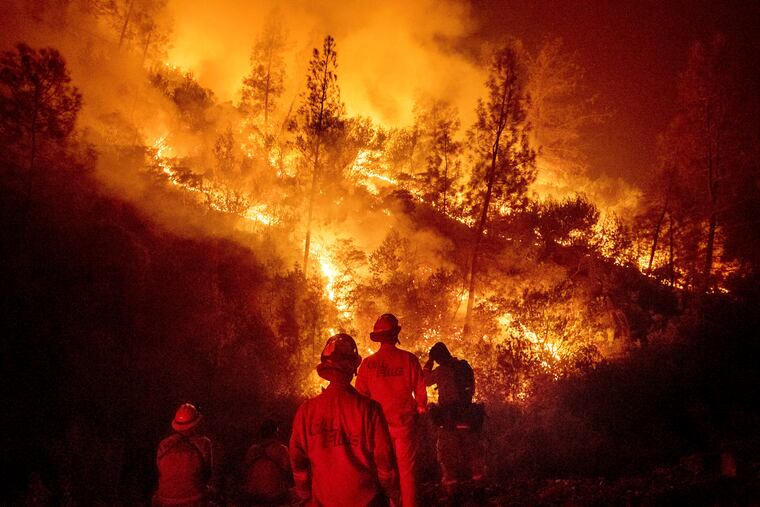Verizon’s life-or-death ‘mistake’ with California firefighters | Opinion
By threatening the lives of firefighters, Verizon has made the overwhelmingly convincing case for net neutrality.

By threatening the lives of firefighters, Verizon has made the overwhelmingly convincing case for net neutrality.
Imagine gas stations jacking up their prices on fire trucks racing to the California fires because they know they could get away with it.
Imagine water companies doubling the price to get the water pressure needed because they know firefighters would have to pay in order to save lives.
This is what Verizon did with their internet data.
The Santa Clara Fire Company pays Verizon for an "unlimited" data plan. They use Verizon to communicate with all the government entities fighting a raging inferno.
That's what the Santa Clara firefighters were doing when they discovered they had virtually no data downloads to guide their fellow firefighters around the flames. When the group contract exceeded the limits of Verizon's so-called "unlimited" plan, limiting them to 25 GB per month, Verizon throttled back their data.
What is throttling?
Using water as an analogy, think of it this way: If Verizon was a water utility, Verizon Water Utility's contract says you can use all the water you like for one flat rate.
Unlimited.
Then the fine print says if you use more than 25 gallons of water in one month, they'll turn down the spigot so instead of giving you, say, two gallons of water per minute for your shower, they'll give one cup of water per minute. You can still use an unlimited amount of water. You just have to enjoy it at a much slower rate as they crimp the hose going to your house.
When emergency communications are concerned, firefighters need the data as quickly as possible.
This is why the Santa Clara firefighters are suing Verizon.
In their defense, Verizon says they made a "mistake." But let's explore this "mistake," shall we?
Firefighters noticed their data speed was way too slow.
Santa Clara County Fire Chief Anthony Bowden said when he requested that Verizon restore data speeds, the company instead offered a data plan that was almost twice as expensive.
"My Information Technology staff communicated directly with Verizon via email about the throttling, requesting it be immediately lifted for public safety purposes," Bowden wrote in an addendum to a brief filed by 22 state attorneys general, the District of Columbia, Santa Clara County, Santa Clara County Central Fire Protection District, and the California Public Utilities Commission. "Verizon representatives confirmed the throttling, but rather than restoring us to an essential data transfer speed, they indicated that County Fire would have to switch to a new data plan at more than twice the cost, and they would only remove throttling after we contacted the Department that handles billing and switched to the new data plan."
Imagine that! Firefighters are risking their lives in a 400,000-acre blaze, and Verizon says, yeah about that data plan… um… you pay us twice as much, and we'll let you communicate with your team. Let us know, 'cause, like, we're gonna hike up our skinny jeans, and go get some barbecue while you decide. Ciao, babies.
Busted, Verizon said, oh, that was a mistake, and we've changed our policies.
The throttling has nothing to do with net neutrality, Verizon said.
To the contrary, "Verizon's throttling has everything to do with net neutrality," a Santa Clara County official said.
Should internet service providers be regulated like landline phones and water?
Only if small-government, market-oriented proponents keep it simple and consumer-based.
The FCC's 2015 Open Internet Order took steps toward this. It established that all broadband Internet service providers were common carriers subject to the federal laws that protect consumers, promote competition, and guard user privacy.
Then, it established a set of "net neutrality" rules of "no blocking, no throttling, no paid prioritization."
Earlier debates encompassed whether internet services could ruin your Friday night Netflix streaming by throttling back your service.
Now, it's a matter of life and death.
Rick Jensen is an award-winning talk show host on 101.7 FM and 1150 AM WDEL in Wilmington, Delaware. Rick@WDEL.com.